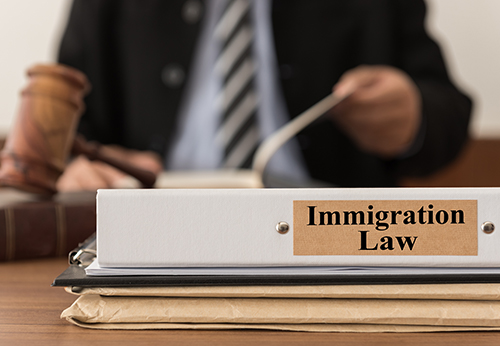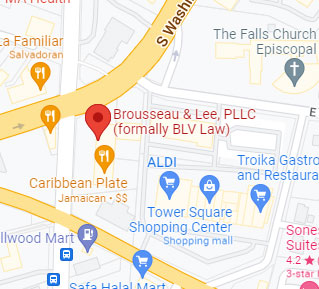 This article discusses:
This article discusses:
- The general deportation timeline.
- Whether a relative can legally re-enter the United States after being deported.
- The significance deportation has on someone’s ability to successfully remain in or return to the United States.
After Someone Is Taken Into Custody By ICE, How Soon Is It Until They Are Deported?
How long until someone is deported depends on several factors. In our experience, the most significant is how much resistance you can or intend to make. Another way of putting it – how much of a fight you have the stomach for.
A client this practice once served had a situation that illustrates this very well.
The client was arrested multiple times for gang-related crimes. This client was not convicted of any of these charges; all charges were dismissed. Nevertheless, he was in criminal custody during the pendency of the criminal proceedings. As well, ICE intercepted him before Virginia authorities released him. He went on to be detained by ICE for two and a half years. On top of this, ICE tried revoking his asylum status, claiming that he lied to get asylum and had committed serious non-political crimes.
We kept trying to reassure the client that he had a strong case. He trusted us and endured the process until we eventually got him released.
This is to say that if you do not have the fortitude to withstand some of the wrongs that may occur during the process or appeal at all, authorities will very likely deport you within 90 days of a removal order being filed.
Assuming you do decide to appeal, how long it takes depends on what point in the process you currently are at and additional specifics unique to your deportation case.
If My Family Member Has Been Removed From The United States, Is It Possible For Them To Return To The U.S. And Apply For Immigration Status In The Future?
It is possible for those deported to return to the United States and apply for immigration status in the future. This depends on several things and can be difficult, however.
The primary factor in determining this is the extent of the immigration violations committed prior to their deportation. This determines what needs to occur for them to immigrate in the future legally.
While a person is in the United States, they accrue immigration violations. But it is their departure, whether voluntarily or not, that triggers the inadmissibility consequences that legally attach to the individual as a result. On top of this weighing them down potentially, they would also need to have an actual path to immigrate to the United States lawfully if attempting to re-enter.
As an example, suppose penalties are attached to somebody married to an American citizen. First, the American spouse would file an I-130 Petition for an Alien Relative on behalf of their non-American spouse. Once the United States Citizenship and Immigration Service approves the petition, it forwards it to the Department of State’s National Visa Center.
The National Visa Center then routes the case to the appropriate consulate or embassy in the non-American spouse’s country, where a visa interview is eventually scheduled. Finally, the American consular office in that country would determine if the individual is admissible into the United States based, in part, on the interview.
It is at this point in the process that all of the individual’s past immigration violations come to light. However, some of these grounds can be overcome immediately with the appropriate waiver if you can establish extreme hardship to a resident or citizen, parent or spouse. Some even require you to be outside of the United States for a certain amount of time before you’re even eligible to seek a waiver.
If deported in absentia, for failure to attend a removal hearing, there is no humanitarian exception. You will have to show reasonable cause for the failure to appear. If you cannot, you must wait five years before applying for a visa or an unlawful presence waiver, if required.
Even if triggering the “permanent bar,” you can still eventually re-enter the United States, albeit after you satisfy the requirement of being outside the country for ten years. After this wait, you can submit a Form I-212, Permission to Apply for Admission After Removal.
In general, there is a way for your deportation case to end with you back in the United States. Unfortunately, it may very well be a long process requiring a lot of determination. Not having the resolution to see it through is really how many fail to re-enter the country.
It does not help that most attorneys give simplistic counsel to clients. Our law practice does not take this approach. Instead, we ensure you understand there is indeed a path forward for your deportation case. All it takes is a willingness and determination to pay the cost – whether that is in time, money, or legal action.
With the guidance of a skilled attorney for Deportation Cases, you can have the peace of mind that comes with knowing that we’ll make it look easy.
For more information on Deportation Cases in Virginia, an initial consultation is your next best step. Get the information and legal answers you are seeking by calling (703) 249-9055 today.

Call Now To Schedule A Consultation (703) 249-9055
